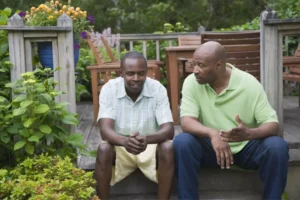As an introvert, I’ve always struggled with maintaining a strong community. I hesitate when making commitments because sometimes I would rather stay at home and have a quiet evening — even though I have those all the time.
It has nothing to do with being shy but everything to do with appreciating my alone time. Lately I’ve realized how little time I spend getting to know those in my church family. Since my husband is still relatively new to my town, we’ve been trying to foster a stronger community.
I learned some things along the way that might help you expand your circle of friendships.
1. Learn to initiate.
One of the biggest things I’ve learned about fostering community as an introvert is how important it is to initiate. Often times when someone asks me to do something, it’s hard to fight my desire to stay at home and relax. Because after all, being around people can be draining, right?
I’ve learned that it’s good for me to initiate activities. Sometimes I feel overlooked because people know I’m not much of a social butterfly. So instead, I’ve learned to come up with fun activities and invite people to join. Even if they are busy and can’t come, at least I reached out and let friends know I’m interested in spending time with them.
One of the ways Josh and I have done this lately is inviting friends over for dinner or a movie. Because we initiated, we get to choose how many people we invite. It’s a plus for me because I socialize much better and more comfortably in small groups than large ones.
2. Start small.
As I’ve discovered, not everyone is open to the idea of community right away, so it’s best to start small. From what I’ve seen, many people, couples and singles included, tend to stay at home with family instead of fostering a larger church community. So instead of trying to put together huge gatherings at first, work on getting your foot in the door.
A few weekends ago, I made a large batch of baked donuts. I asked some work friends for their addresses, and Josh and I went around delivering donuts. One of them ended up being a new friend outside of our time at work!
There are other benefits of starting small. As an introvert, I’m much more likely to want to spend time with someone if it’s one-on-one or in a small group of people that I know well. Starting small also means you don’t have to initiate or accept activities every weekend. Find a comfortable pace and build from that.
3. Plan ahead.
Sometimes it helps me feel more comfortable knowing about plans ahead of time. Schedule outings in advance so you have time to prepare for them. For example, spend some quiet time in the morning to energize before you go out to meet friends for lunch.
Whenever I’m invited somewhere, I usually try to drive myself or meet my friend at the chosen location. That way, when I feel like I need alone time to recharge, I won’t feel stuck waiting for someone to finish socializing before I can go home.
Another tip is to set time limits. You know how long you can socialize before you feel drained. When someone asks you to hang out, tell them you’re available until a certain time. If they know in advance, you won’t feel bad when you say you have to go.
Don’t be discouraged if your efforts to build community don’t always go as planned. Josh and I extended invitations to couples in our church to join us in a short Bible study, and everyone we asked declined. Reasons varied from being too busy to not being interested. But instead of giving up on strengthening relationships within our church and community, we started small and tried other ways — like delivering donuts.
What are some ways you’ve strengthened your community? If you’re an extrovert, what are some of your experiences building community with introverts?
Copyright 2014 Amy Kessler. All rights reserved.










